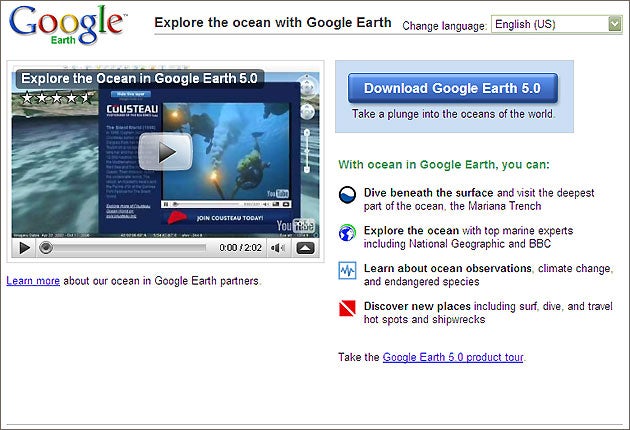Google Ocean shows effects of climate change

The same satellite technology that allows more than 500 million users to view everything from the Grand Canyon to a neighbour's backyard is now helping them glide through the depths of the ocean, track a whale or compare reviews of their favourite dive locations.
The developers of Google Ocean - built using visual satellite images, sonar waves bounced off ships and data pooled from scientists and individuals - say it could also help highlight the effects of climate change on the seas.
But three months after its launch, the site has high-resolution images of less than 5 per cent of the sea, much of it from around the United States and Japan where research facilities are collaborating closely with Google.
The site has time-delay photos that show the melting polar ice caps, Google's chief technology advocate, Michael Jones said Friday on the final day of the World Ocean Conference in Indonesia.
Jones said the company is still recruiting teams to collect content that will improve nascent efforts to map the underwater world. He urged governments, scientists and divers to upload reviews, photos and even video footage.
"Those kinds of visualizations help people — not just a fellow scientist but everyday people — develop a certainty about the importance of changes that could affect their lifestyle or their ability to live at all," he said.
Next to nothing has been uploaded on, for instance, Southeast Asia's coral reefs, the largest and most biologically diverse in the world, which experts warned this week could be wiped out by the end of the century as water temperatures rise.
"If we help people see (the ocean) by helping scientists to show it, then people can at least have a dialogue about it," Jones said.
Join our commenting forum
Join thought-provoking conversations, follow other Independent readers and see their replies
Comments
Bookmark popover
Removed from bookmarks